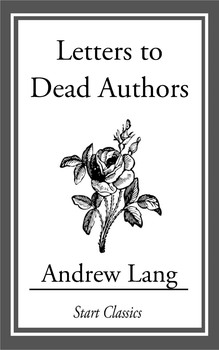LETTER–To Jane Austen
byLetter to Jane Austen begins with a quiet yet sincere admiration for a literary voice that once echoed in drawing rooms, now faint amid the louder tones of modern fiction. The author opens by noting how Austen’s art—subtle, moral, and finely tuned—has drifted from favor in an era that hungers for urgent passions, bold causes, and dramatic upheaval. Austen’s heroines, though modest in scope and setting, are painted with an intelligence and clarity unmatched in the broader romantic tradition. Their strength lies in restraint, not rebellion; in wit, not noise. This controlled elegance, once admired for its realism, is now mistaken for detachment or narrowness. Yet, to those who read closely, it offers a mirror not of fantasy but of human nature—stubborn, hopeful, fallible, and kind.
Readers of today might prefer heroines who confront scandals or revolt against injustices, but Austen never sought to sensationalize. Her settings were narrow by design—country homes, ballrooms, and parsonages—yet within these walls she drew entire worlds. The emotional terrain was rich even if the geographic range was limited. Her characters’ trials involved inheritance laws, ill-suited marriages, and misunderstandings that held real consequences for women of her era. Austen never exaggerated these struggles, yet they resonated deeply because they were true. A missed letter, a thoughtless flirtation, or a cousin’s ambition could shift the future. And through it all, Austen wrote with a tone of clear, amused detachment, trusting readers to find the humor without being told where to laugh.
The author imagines a Jane Austen unafraid of scandalous subjects, turning her pen to Lydia’s future or the inner life of Mary Crawford after exile. Could she have written with fire about betrayal or ruin? Yes—but she chose not to. It was her belief that fiction should instruct as well as delight, not indulge every curiosity. To Austen, virtue wasn’t a sermon but a behavior. She showed what it meant to live wisely, to err gently, to love thoughtfully. These were stories for the long haul, not for momentary shocks. That approach may explain why modern critics, raised on more turbulent tales, accuse her of evading larger issues. But evasion is not absence. It is control.
Indeed, Austen’s refusal to discuss politics, evolution, or the spiritual crises creeping into Victorian literature might seem evasive, but the omission is deliberate. Her moral universe is internal and social, not cosmic or revolutionary. She measured progress not by revolts or discoveries, but by self-awareness and humility. Mr. Darcy’s greatest journey is not across a continent, but through his own pride. Elizabeth learns not through rebellion, but by recognizing her errors. These are quieter transformations, but no less meaningful. Today’s fiction often insists on spectacle; Austen was content with sincerity.
Despite criticism, the author argues that Austen’s work possesses enduring value, especially in her keen sense of character. Her men and women are drawn with such insight that they remain recognizable even now—ambitious mothers, impetuous youths, kind uncles, calculating suitors. She gives readers a gallery of types not fixed in time but alive in any society that values decorum and self-knowledge. And in a literary world increasingly crowded with novels that shout, Austen whispers—sometimes wryly, sometimes warmly—but always wisely. The modern appetite may stray, but eventually it returns to nourishment.
In closing, the letter defends Austen’s choice to write of the domestic, the subtle, and the real. In those restrained pages, the reader finds more than idle chatter. There is compassion for the foolish, delight in the clever, and sympathy for those who learn too late. Austen believed that good sense and a little laughter could repair most things, and if they couldn’t, then they would at least ease the burden. That belief, modest but resolute, remains her gift. Trends may shift and critics may wander, but the wisdom of Jane Austen endures, carried not by noise or novelty, but by truth spoken softly.

